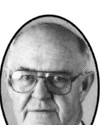Mr. Speaker, it has been an interesting half hour sitting here, listening to and seeing how hon. members who sit with me referred to half the thoughts I was to mention on this afternoon. I will try to enlarge a few of them and address a few comments to hon. members across the House.
We are addressing Bill C-18. I have not been in politics very long but I have seen some of the bills presented to the House. I have noticed how additions have been made to bills to get them through, to make them a little sweeter, to sweeten the bait so that people can support them.
If hon. members on the other side of the House had really wanted to pass the bill, they would have probably included such things as suspending strikes in the western grain handling system. That has just cost my constituents about $200 million in sales. That would have helped me to support the bill instead of being against it.
Why did they not also include in the bill to sweeten it up a bit a suspension of the gold-plated pension plans for MPs? Then I could have supported the bill. My constituents would have sent me congratulatory messages as soon as I left the floor of the House.
Why did they not include the suspension of phrases that we cannot use in the House when we want to give our appreciation to or criticize the other place or whatever they call it? I could have supported that. I could have gone home and said: "I am for Bill C-18", and people would have loved me for it.
Many members have raised concerns about the redrafting of constituencies, especially our hon. friends on the other side. I see a few little problems with it. I do not think they are that severe. I think we can overcome those little problems. One problem I have with my constituency is that it is gone. I do not object too much to that, but the name Lisgar, a very prominent name in Canadian history, will be gone. I will dwell on that point a little later. I do not I find it so objectionable that I do not have that riding to run in next time because the piece of property where I live is still there. It is going to be included in the boundaries of Portage. It is a real incentive for me to run in the constituency of Portage; it means that I have to defeat another federal minister. I did that in the last election. It really gives me incentive to be a politician.
The bill suspends the operation of the Electoral Boundaries Readjustment Act. What does that really mean? It means we are suspending a regulation or a rule entrenched in the Constitution. Why is it such a serious issue? I would like to dwell on it for a few minutes.
In 1992 when we were discussing the referendum to change the Constitution I will never forget Mr. Peter Warren, a very well-known investigative reporter for CJOB in Manitoba, said: "I am going to read to you the best constitution that has ever been written and then just show and point out to you how valuable a constitution is".
I wondered what he would read the following day because I was not that informed about constitutions. He read the manifesto of 1917 written for the Communist Party. If that constitution were taken to legal authorities or political analysts, it would be found to be the best constitution that has ever been written, guaranteeing all freedoms, all rights, everything needed in a perfect constitution.
However the reason it did not work in the Soviet Union was that politicians did not honour it. All of a sudden they felt they could suspend the right to have property. All of a sudden they thought they had the right to suspend freedom of religion. All of a sudden in 1937, when things got really hostile in the world, they thought they had the right to suspend the judicial system. When my uncle was accused of being a traitor to the Soviet government he did not have the right to appeal to the government. A military tribunal accused him of being a traitor and he was shot the following day without having any representation.
That is what happens when we as politicians change the guidelines and the rules of a constitution. If after the hearings of April 29 Canadians say that the boundaries commission is no good, that they do not want it, I will very gladly support them in having the boundaries commission stopped. We as politicians do not have the right, according to our Constitution, to do that before we have had the hearings. That is why this worries me a bit.
If the procedures and House affairs committee fails to put forward a new proposal for consideration by the House, there is no contingency plan offered to save the work done by the current commission. If no new process is introduced the original
process that was started is finished, which means that we will have wasted $5 million worth of work.
Is this the way to run government? That is why I said previously that if the right to strike had been suspended we could have saved $200 million, which would have made a lot more sense to me.
I am aware of no proof that Canadians are dissatisfied with current distribution. Politicians are another story. I have heard that the problem with redistribution comes from politicians. This would be the second political interference in the process since the 1991 census. Politicians should remove themselves from the process, except for the purpose of ensuring that the number of MPs does not increase.
As one of my colleagues mentioned earlier in the House, it is amazing how quickly politicians can get action in the House when their own interests are threatened. When they hear about criminals being let loose and about children who are starving they are very slow to react, but here is a situation which does not suit us and we react.
Once it was determined that the commission's proposals could change the chances of re-election, the government was very easily prodded to take action. It put its feet against the wall and said: "This is no good. This process does not work. Let us change it".
Very often constituents can pester their MPs and the government for action on an issue that is important to them and their community and they get very little response. But once the politicians' interests are threatened we see immediate action like we see here today.
This problem clearly highlights the need for more regional representation. This is the whole issue. Hon. members object to this process. They are not so much worried about the process as they are about losing political clout in some areas where they have had it and want to keep it. This is why I think it is very important, as my hon. colleague said, that we go to a more regional and equal redistribution of the Senate. I would fully support her comments about that.
It worries me when I see that in Manitoba we would lose more rural MPs. That is the one thing I do not like, and we would get more urban MPs. The people who have little power already would get less power down the road. By increasing the members of Parliament from huge urban areas we would be getting less regional representation than more.
That is why I think we should go to an elected, equal Senate like the United States has. That is why I can support my hon. colleague. The problem with the current system is not only that it adds more MPs but it increases costs. It is useful to compare the Canadian system with the American system as my hon. colleague did. Her figures are much like mine. Each representative in their house represents about half a million people. Each state has two senators, no matter what the size of the population, and each senator represents about 2.5 million people. When I look at the issue today in the United States and the clout that those farmers have because of these two Senate representatives in the farm states, it amazes me why we have not done this a lot sooner so that we could have equal representation from regions and have equal distribution of wealth or a chance to improve our economics in those areas.
Perhaps I should not raise it here. The Prime Minister was a little upset about not getting the wages that hockey players receive. I remind the House that hockey players' salaries are based on United States guidelines of what they think they are worth. If our Prime Minister served 10 times the population and increased his wages by 10 times, he would probably get more money than a hockey player. That is my answer to the value as far as our work is concerned. As an MP, if I did 10 times as much as I am doing today maybe my wages would be a little higher too. We have to put those things in perspective.
I said I was opposed to this redistribution because of one or two concerns. One is about the name change. Adding six letters to the name of Portage could be very easily remedied for me. It would either read Lisgar-Portage or Portage-Lisgar. That would satisfy my complaints about the redistribution problem.
Hon. members may wonder why I am so set on having the name Lisgar in that constituency. This is what I found out looking into the records of the House. The name Lisgar is of significant importance because Sir John Lisgar is a great figure in Canadian history. He was born in Bombay, India, and educated at Oxford University. He was the member of Parliament for County Cavan and served as a Lord of the Treasury from 1844 to 1846 and the chief secretary for Ireland from 1852 to 1855.
During his term in Canada Lisgar took an active role in diffusing Canadian-American tensions created by the Red River rebellion and the Fenian raids. We know how important the rebellion was in Manitoba, the Louis Riel rebellion as they called it. We lose a tremendous part of history if we lose the name Lisgar.
He was a strong supporter of Confederation. He helped negotiate the transfer of Rupertsland and the entry of Manitoba into Confederation. He also encouraged British Columbia to join. He was designated by John A. Macdonald, Prime Minister at that time, as the best Governor General that Canada ever had.
This is what we lose if we take the name Lisgar out of Canadian history. I would encourage the commission and I am
going to write a letter to it asking it to change the name Portage to Portage-Lisgar or Lisgar-Portage, whichever way.
We can see that this name is of great importance to all Canadians and in particular Manitobans. I am at a loss therefore as to why it was dropped. I hope that when the commission finishes its work, completed its hearings, it will come to the conclusion that is beneficial to Canadians as a whole, not as Canadian politicians but Canadian citizens.
The reason we are here as members of Parliament is to follow the wishes, suggestions and guidance of our constituents. We are desperately failing to do that with Bill C-18. There has been no discussion of this bill in any constituencies. It has been done very expediently and quickly for some members of the House.
I hope that we honestly start recognizing that we represent our constituents, that we are here for one purpose, to serve them, not just to tell them how to be served.









